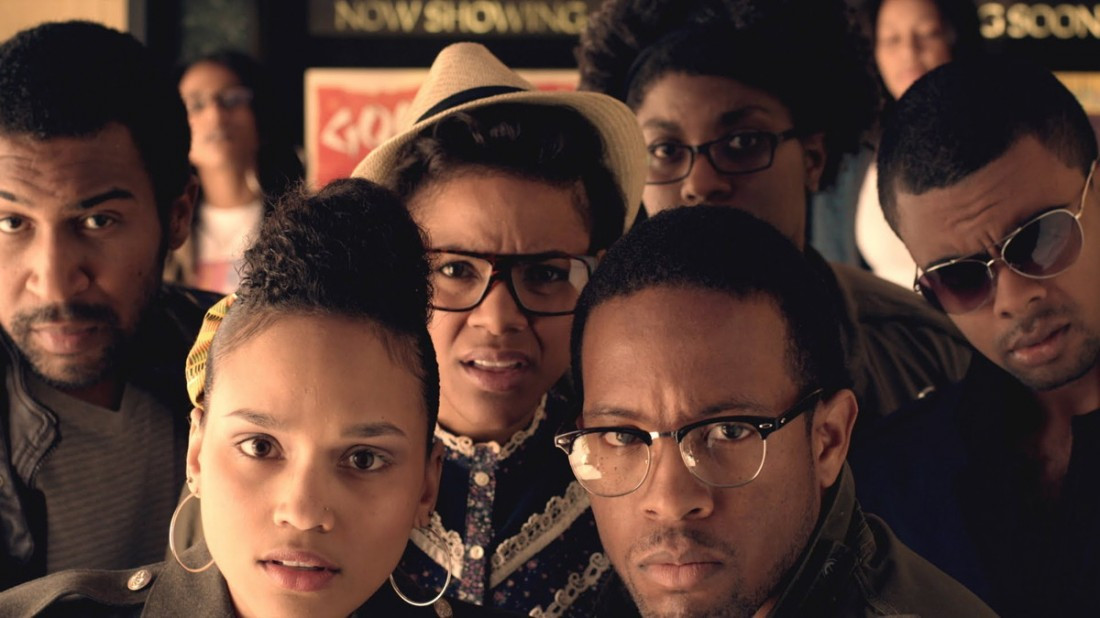These white eyes on me…
A vast divide on campus
“Dear White People, please stop touching my hair, does this look like a petting zoo to you?”
“Dear White People, the minimum requirement of black friends needed to not seem racist has just been raised to two, sorry but your weed man ‘Tyron’, does not count.” – Dear White People.
Dear White People, a film written and directed by Justin Simien, steps into the lives of African American students who are “doing time at an ivy league” as being “a black face in a white place.” The film had been eight years in the making to address stereotypes African-American students go through on a regular basis.
The film received praise and accolades from the surrounding remembers within and outside of the film industry. In Canada, it was only showcased in some major cities (by American standards). In other words, not Winnipeg.
The film is set within an American context but the narratives are universal. The privileged majority might not realize what it’s like to be a “black face in a white place,” so let’s give an example. I want you to imagine a time in your life where you felt at your most vulnerable and judged by others. A time where you felt like everyone was against you just for being who you are. Now, take that inadequacy and apply it to every single day as you live in a society where you are seen as different.
This is what it’s like to be a minority. As a human rights major, I’m always amazed by how little race and racism is discussed within my curriculum. So naturally, when race is discussed within class, I feel compelled to speak to the privileged majority to remind them of the privilege they’ve acquired through the historical work done by their ancestors.
On the University of Winnipeg campus, I think there is a vast divide among racialized students. In Riddell Hall it is almost a Mean Girls setting: we have the nerds at one table, jocks, preps, black kids, Asian crew, LGBTTQ at another table and so on. This couldn’t be closer to reality. We stress the need for diverse cultural representation, yet we construct such a huge social divide based on intersectionality.
Personally, the racism I’ve experienced the most as a “black face in a white place” has been within my classroom. Since I am of lighter complexion, my fellow Euro-Canadian students feel comfortable to still reveal their primitive ways of thinking. Breaking down these stereotypes is what Dear White People addresses.
Dear White People, no you cannot place us all into one category just because we are not white. Stop speaking to us slowing because we have an accent or wear a hijab. Remember that feeling of what’s it like to be seen as different, for we feel that every second of every day trying to fit into a place where white eyes are always on us.
Alexa Potashnik is a University of Winnipeg human rights major.
Published in Volume 69, Number 24 of The Uniter (March 11, 2015)







